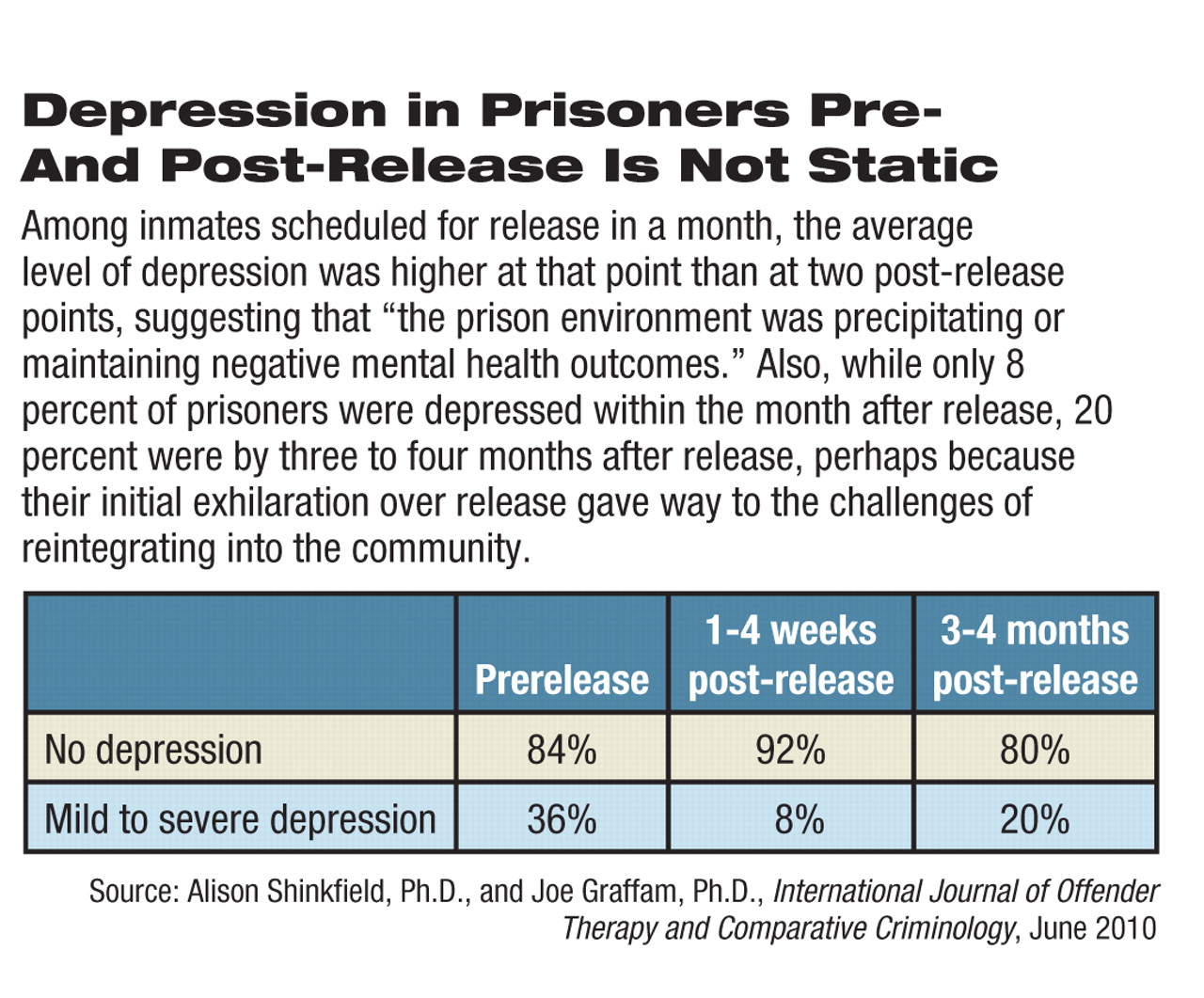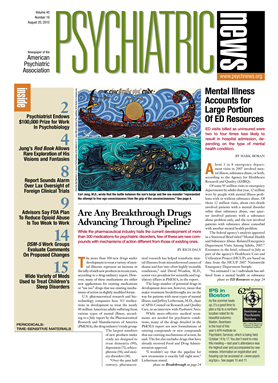Although most inmates do not feel depressed or anxious soon before prison release, some do, according to data from a new study. It was conducted by Alison Shinkfield, Ph.D., a research fellow in psychology, and Joe Graffam, Ph.D., a professor of psychology, at Deakin University in Victoria, Australia.
Study subjects were 101 adult prisoners—72 male and 29 female—recruited from eight prisons on the outskirts of Melbourne and from four in Queensland. They completed the Beck Depression Inventory and the Beck Anxiety Inventory a month before their release.
The study results, published in the June International Journal of Offender Therapy and Comparative Criminology, indicated that the majority experienced no depression or anxiety. Shinkfield and Graffam were surprised, however, by the anxiety results, Shinkfield told Psychiatric News. “We thought that the level of anxiety among the prisoner group would be beyond the normal range, given the known stressors of the prison environment and those associated with impending release and reintegration,” she said.
The remaining subjects did, however, show signs of being mildly, moderately, or severely depressed or anxious according to the Beck Depression and Anxiety Inventories.
The researchers also interviewed 47 of the 101 subjects within one month after release, and 19 of the 47 subjects three to four months after release to assess depression and anxiety. This was a low retention rate, they noted, but typical for longitudinal studies of released prisoners.
Most subjects experienced low levels of anxiety after release, which had also been the case for most of them before prison release, and more subjects were depression-free after release than before, the study data showed. Nonetheless, some subjects were still experiencing mild or moderate anxiety or mild or moderate depression after release.
The researchers also examined factors that influenced subjects' depression and anxiety scores after release from prison. For example, they found that subjects who were older were less likely to be depressed or anxious after release than younger subjects were, perhaps because they had been through the release process before. Subjects who had emotional support from family and friends were more likely to be anxious after release than those who did not have such support—perhaps because they feared they would not be able to meet the expectations of family and friends regarding their reintegration into society.
And as for subjects who were dealing with addiction issues following prison release, they were more likely to be depressed or anxious than those not dealing with such issues.
The results have some practical implications, the researchers believe. For instance, if prisoners were given the opportunity to discuss their feelings about leaving the prison environment before they reentered the community, it might decrease any depression or anxiety they have and increase their chances of a successful reintegration into the community. And if prison officials gave prisoners a list of mental health clinics in the community before release, the prisoners might have someone to turn to for help if they experience depression, anxiety, or substance abuse problems after their release.
“This study is important for several reasons,” Henry Weinstein, M.D., a clinical professor of psychiatry at New York University and chair of the APA Caucus on Correctional Psychiatry, said during an interview. “First, it concerns the subject of prisoner reentry into the community—a subject that has been the focus of research attention for a decade now. Second, it examines a narrow area of reentry—depression and anxiety in people leaving prison—under high power, so to speak. Thus its results have implications for people with mental illness in the criminal-justice system. For example, the Department of Corrections should have a case worker follow up with prisoners after release from prison, and if prisoners qualify for Medicaid, the Department of Corrections should make sure that they are signed up for it upon leaving prison, so that they can afford to visit a mental health clinic if necessary.”
The study was funded by the Australian Institute of Criminology.

